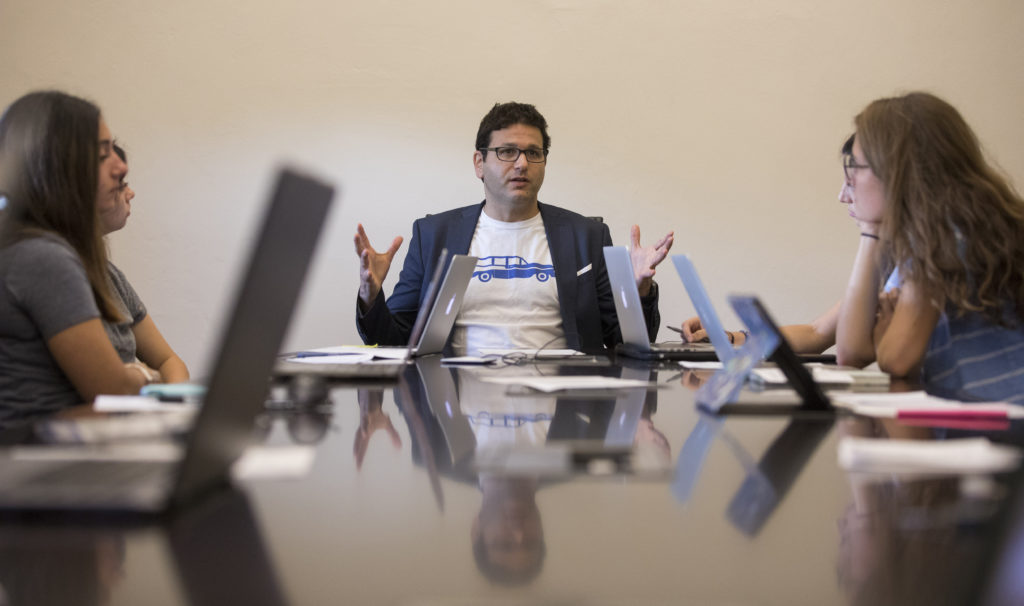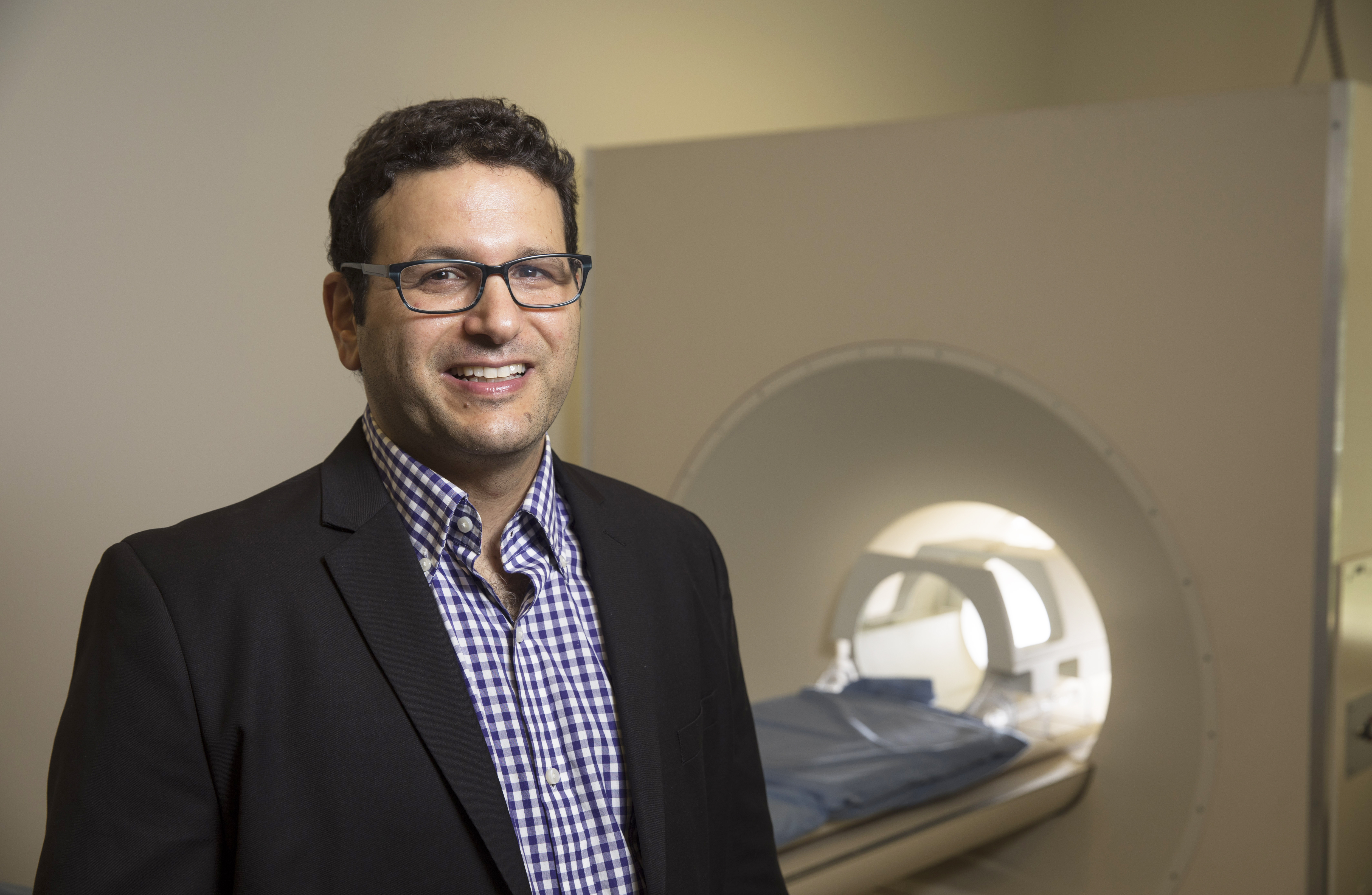Assaf Oshri, an associate professor in the College of Family and Consumer Sciences, was awarded a Career Award by the National Institutes of Health to conduct a neuroimaging study of resilience among rural youth.
Where did you earn degrees and what are your current responsibilities at UGA?
I earned a Bachelor of Arts degree in behavioral sciences from Ben Gurion University in Israel, a master’s and Ph.D. in developmental psychology from Florida International University in Miami and also completed a postdoctoral fellowship in developmental psychopathology at the University of Rochester in New York.
At the moment, I am an associate professor at the department of human development and family science in the College of Family and Consumer Sciences. My responsibilities are to teach, mentor and conduct research. I am currently the director of the college’s Youth Development Institute and co-director of the Quantitative Methods in Family Science Certificate Program in the department of human development and family science.
When did you come to UGA and what brought you here?
I arrived at UGA during the summer of 2013. Before that, I was a research scientist at the Mt. Hope Family Center at the University of Rochester, and I was interested in finding a tenure-track position in a research-intensive university that would enable me to conduct research as well as train and teach students.
What are your favorite courses and why?
My favorite courses to teach are advanced applied statistics classes and “Advanced Theories in Human Development and Family Science.” I believe that the intersection between statistics and theory synergistically brings high-quality empirical research.
What are some highlights of your career at UGA?
I was fortunate to be nominated and awarded an Early Career Award by the College of Family and Consumer Sciences College in 2015. I also felt very lucky to be awarded the Sarah Moss Fellowship last year. This generous UGA fellowship provided me with the opportunity to travel abroad to learn neuroeconomic research and decision-making at McMaster University in Canada.
I was recently extremely honored to receive a Career Award (K01) from the National Institute on Drug Abuse, part of the National Institutes of Health. This five-year, $1 million grant will enable me to train in functional magnetic resonance imaging methods so that I can incorporate neuroimaging methods in my research on risk and resilience in at-risk youth.
How do you describe the scope and impact of your research or scholarship to people outside of your field?
I believe that it is extremely important to understand how at-risk youth overcome exposure to early life adversity and become resilient. Specifically, I study how adverse childhood experiences (such as exposure to harsh parenting or poverty) affect the development of risky behaviors in youth, and how protective factors can promote resilience among youth.
How does your research or scholarship inspire your teaching, and vice versa?
Conducting research is not always easy, but it is very gratifying and intriguing. My research requires continuous learning and development of complex skills. When I teach I am forced to think through the research process, and by doing so I believe I become a more effective teacher and researcher. I must add that loving what I do, and doing what I can to contribute to the well-being of families and youth, is the key to both my research and my teaching success. I also gain tremendous satisfaction in seeing my students develop and gain expertise in research that benefits youth and families.

What do you hope students gain from their classroom experience with you?
I hope that my students gain useful knowledge that will be instrumental in their personal and professional development.
Describe your ideal student.
My ideal student is highly motivated, interested, passionate, curious and persistent.
Favorite place to be/thing to do on campus is…
… visiting the Child Development Lab at the McPhaul Center. My daughter Maya (2.5 years old) attends there, and I love dropping her off and/or picking her up from McPhaul.
Beyond the UGA campus, I like to…
… practice yoga, go mountain biking, and read newspapers and books.
Community/civic involvement includes….
… volunteering in the community by reading in the classroom in public schools. I was very proud that I was recently naturalized as a U.S. citizen and am able to vote. I also like to donate to community programs.
Favorite book/movie (and why)?
My favorite book is “Sapiens: A Brief History of Humankind,” by Yuval Noah Harari.
The author recounts the history of the human race over past 70,000 years in a very elegant, insightful and engaging way. I believe that his ability to integrate a wealth of historical, psychological, archeological, anthropological, sociological and political information to create such a cohesive narrative is eye-opening and demonstrative of the superb inductive and deductive abilities needed to make progress in science.
My favorite recent movie is “RBG,” about the early legal battles of Justice Ruth Bader Ginsburg. It is inspiring to see how Justice Ginsburg was able to make her way to the Supreme Court despite rampant discrimination. She made a huge progressive impact on the legal system in the U.S.
The one UGA experience I will always remember will be…
… attending a Bulldog football game in Sanford Stadium.
Is there anything else you’d like to add?
I love my family and my graduate students, and I hope that my research will help the well-being of families and promote resilience among at-risk youth.
(Originally published Sept. 23, 2018)


